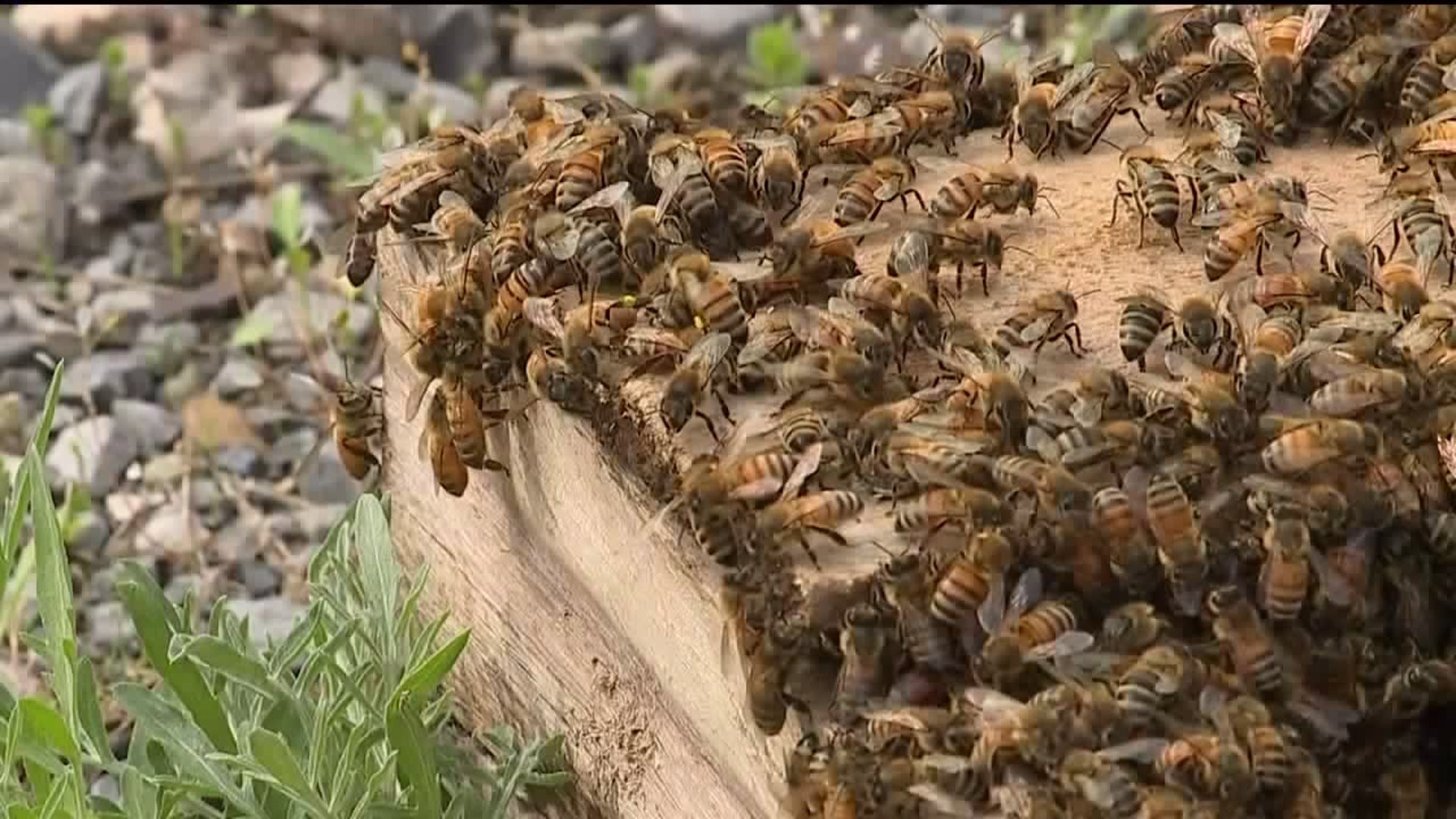WHITE DEER TOWNSHIP, Pa. -- Jeff Cook carefully put 30 pounds of honey bees into the back of his pickup truck at Brushy Mountain Bee Farm, which is right outside New Columbia.
Cook owns a farm in Selinsgrove and is a beekeeper in his spare time.
"A lot of mine, I take out for pollination to the Amish for cantaloupe and watermelon and also a fruit orchard in Middleburg," said Cook.
Nearly 1,000 people had the same idea. They waited in line at the distributor in Union County for Brushy Mountain's annual Bee Pickup Day.
"With the bees dwindling in their population, people become more interested in keeping bees in their backyard," said Jim Wilson, manager.
Jim Wilson tells Newswatch 16 it was a rough winter for beekeeping. Many of these people lost most if not all of their bees.
"I'm going to say in the area of maybe 2,000 bees," said Victor Rumberger.
"I had a couple of hives that were weak going into the winter. If they're weak going into the winter, it's a crap-shoot if they're going to survive," said Amy Hopkins of Lewes, Delaware.
"I would predict that it's not going to be like getting a headache, taking an aspirin and having the headache go away. It's going to be lots of different factors that have to be considered," said Beth Capaldi.
Beth Capaldi is an Associate Professor of Biology and Animal Behavior at Bucknell University in Lewisburg.
She wrote a book called, "Why Do Bees Buzz?"
Capaldi tells Newswatch 16 in 1988 a parasite called the varroa mite was discovered. It gives bees viruses we can't control.
"They created a lot of problems and created a huge decline among our honey bee populations nationwide," said Capaldi.
In 2006, the name Colony Collapse Disorder formed when a beekeeper noticed the majority of his worker bees disappeared and left behind a queen.
Worker bees are needed for a colony to survive.
Capaldi believes while Colony Collapse Disorder has contributed to the loss, many bee experts think the decline in population is not from one disorder.
Varying winter temperature means changes in the timing of flowers.
"So when you have population decline plus changes in food availability, that's an interaction affect that's a really hard to control and predict," said Capaldi.
So what can we do? Capaldi suggests planting perennials, shrubs and any plants that provide food for bees. Also, continue learning.
Brushy Mountain Bee Farm holds education programs for people who are just getting started in beekeeping as well as for people who have been doing it for a long time.
"It's because of the people who come here, the backyard beekeepers, who are keeping the bee population stable at least," said Wilson.
Wilson is encouraged by the long line of people who are interested in the future of honey bees.

